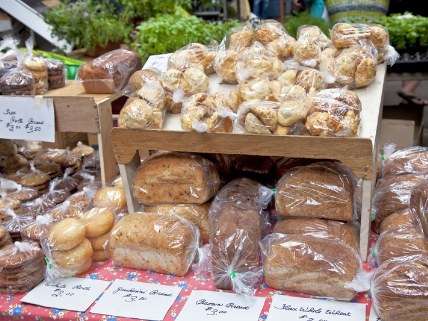Deregulation of Local Foods Is a Winning Idea That's Spreading
New bills in Montana and California would make it easier for small food entrepreneurs to thrive and for consumers to have more choices.


Newly proposed legislation in Montana and California could loosen restrictions on millions of small food entrepreneurs in those states.
In Montana, the Local Food Choice Act would "allow for the sale and consumption of homemade food and food products and… encourage the expansion of agricultural sales by ranches, farms, and home-based producers" in the state.
The law would exempt those who make and sell such foods directly to consumers from mandatory licensing, permitting, packaging, labeling, inspection, and other requirements. The law doesn't exempt those who don't sell food directly to consumers—as in the case of those who sell to restaurants or grocers—or to those who sell food across state lines.
"Eating what we choose should never be a crime," said State Rep. Greg Hertz (R), as he introduced the bill last month. Indeed, Hertz's bill would effectively legalize in Montana what is now a crime there and in almost every state: the act of selling something as basic as homemade cheese dip or pickles to your neighbor.
Hertz's Local Food Choice Act is fashioned after Wyoming's groundbreaking Food Freedom Act, first-in-the-nation legislation passed two years ago that deregulated many direct-to-consumer food sales within the state. As I detailed here, Colorado passed a similar law last year. Other states have also considered similar measures.
In California, a bill introduced this week by Assemblyman Eduardo Garcia (D), the Homemade Food Operations Act, "would allow home cooks to sell hot, prepared foods directly to customers."
The California bill isn't as ambitious as those adopted in Wyoming and Colorado or that proposed in Montana—it still contains requirements for sanitation, training, and permitting—but it's a giant leap in the right direction.
"Many of my constituents have expressed their concerns and frustrations trying to work in compliance with the existing, overly complicated cottage food laws," said Assemblyman Garcia in a statement announcing the bill, referencing the state's overly restrictive cottage food laws.
Not surprisingly, all this talk of deregulating local food sales has some people nervous. State and local health officials in Montana, for example, have spoken out against the state bill, claiming it could lead to a rise in cases of foodborne illness.
"Every state that looks at setting their local food economy free inevitably finds food police lining up with statistics on how freedom of choice is a danger," said Wyoming State Rep. Lindholm (R), who sponsored the Food Freedom Act in his state, in an email to me this week. "These individuals, bureaucrats, and industry associations all espouse their merits as to being defenders of ignorant consumers that cannot be trusted to make their own decisions as to what is best for their family."
I asked Lindholm if there's been any uptick in foodborne illnesses in Wyoming since the law's passage.
"Wyoming has seen the exact opposite that these do gooders predict," Lindholm tells me. "Wyoming[']s local food options have exploded and we still have had 0 foodborne illness outbreaks due to this Act passing into law."
I've chuckled while hearing more than one overly cautious eater tell me they'd never eat food that was prepared in an uninspected home kitchen. Everyone should be free to avoid such food if they want, of course. But keep in mind that your own home kitchen isn't inspected. Your parents' kitchen and your grandparents' kitchen weren't inspected, either. Your friends' and relatives' kitchens aren't inspected. The baked goods you took to school to sell to other kids as part of a bake sale (or that you send with your own kids to school today) haven't earned any government seal of approval.
Avoiding all foods save for those prepared in an inspected kitchen means dining out at every meal or not eating at all. If one or both of these are your choice, then so be it. But Montana and California have moved to allow others to exercise their own choices. And I hope they succeed.


Show Comments (33)